Article Note: This article “Privacy, Security & Health Risks of Social Media! How to Avoid Them?” was first published on 12th January 2018. We last updated this article on 6th January 2023 with fresh information.
Social media has become an essential component of practically any lifestyle. From Facebook and Twitter to Instagram, LinkedIn, and beyond – these platforms have connected over 100 million people worldwide! So why not take advantage of the opportunities they offer? Join in on the conversation today!
Social media is great for connecting with friends, family, and customers but hackers are always lurking in the background. Protect yourself from these predators by gaining an understanding of all potential risks associated with social media use – now’s the time to get clued up about how you can stay safe online!
No matter how old you are or what level of education you have attained, every individual is vulnerable to online security threats. Being informed and proactive with precautionary measures is the best way to protect yourself – especially if social media plays an important role in your life as a professional or business owner. Want to know more about keeping yourself safe when leveraging digital platforms? Read on for key insights into protecting your privacy, security, and health from the potential risks of social media!
Privacy and security risks of social media for individual

Social media presents a number of potential privacy and security risks – but not everyone is aware of these. We’ll dive into what kinds of threats are out there and how to protect yourself from them so that you can enjoy all the benefits social media has to offer without any worry!
1. Identify theft or data leakage
In 2012, a staggering 12 million Americans were victims of fraudulent circumstances caused by identity theft and data leakages. These unfortunate events resulted in losses exceeding $21 billion across the US alone! Financial services organizations are taking steps to protect their customers from these unsavory hacks – yet somehow hackers still manage to access confidential information, risking not only serious financial damages for those involved but criminal offenses if caught. It’s paramount that we do everything possible to ensure such activities cease immediately.
2. Risks and dangers in social sharing
Social media can be fun, but it’s important to stay aware of the risks involved when sharing your whereabouts with others. While features like location tagging on Facebook, Instagram, and Snapchat are great for keeping friends up-to-date about what you’re doing – they also allow strangers access to detailed addresses that could lead to unwanted interaction in real life. Keep yourself safe by staying conscious of who will see these details before hitting share!
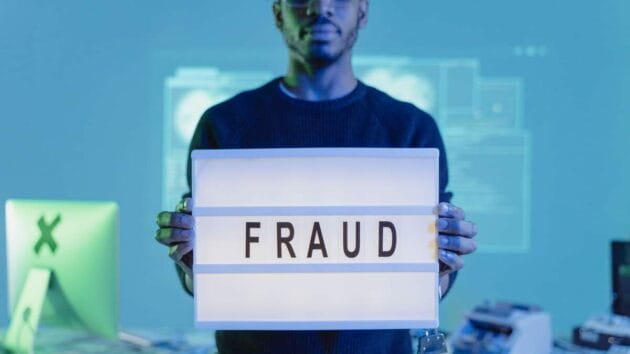
3. Unattended or idle accounts
Social media accounts left idle or unattended can quickly become targets of hackers, leaving you vulnerable to privacy and security risks. Whether it’s an account opened for the sake of keeping up with friends or business contacts, make sure to stay on top of your activity as not doing so could lead malicious users to assume your identity, contacting those in your circle in order to extract private information.
4. Common human errors
Every day, technology plays an increasingly important role in our lives as we use multiple devices to stay connected with everyone around us. All too often, however, a careless mistake can occur while using social media channels – be it accidentally pressing the wrong link or downloading hazardous files without realizing their malicious nature. Protect yourself by being extra vigilant and weighing up any potential risks before taking action on your account!
5. Using unsecured devices
Social media users, beware! If you’re frequently on the go with an unprotected device in hand, your accounts are at risk of being breached. Even smartphones – as easy to use as a single app – are vulnerable if they lack firewall or virus protection. Don’t take chances – protect yourself and secure any devices used for social media access today!
How can an individual identify the privacy and security risks of social media?
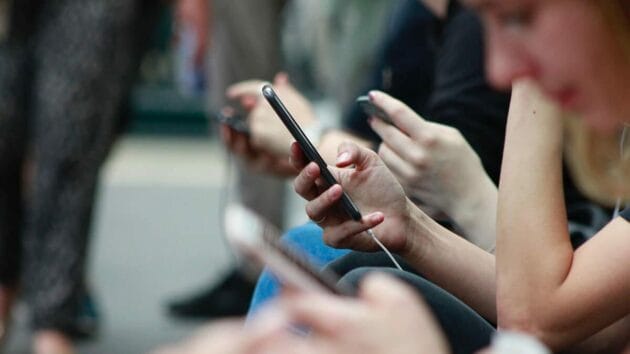
If you or your friends observe any unexpected changes on your social media accounts, don’t ignore them! It’s an indication that something might be wrong and requires swift action. Take the opportunity to perform a free identity check as soon as possible in order to protect yourself from losing control of all online activity associated with that account.
If you’re using social media and noticing regular popups, it’s time to take action. Take control of your device security by making sure both privacy settings and software updates are up-to-date for the best protection possible!
How can an individual avoid/prevent the privacy and security risks of social media?

Recommended for you: Noteworthy Tips to Measure Social Media Results Effectively.
1. Strong password
Want to make sure your social media account is secure? A strong password should be a top priority! Try LastPass, an online generator that creates alphanumeric passwords with symbol combinations – making it harder for a hacker to crack. Stop worrying and start protecting yourself now – create the strongest security today!
2. Don’t accept requests from unknown profiles
Protect your social media account from dangers and fraud with a few simple steps! Avoid accepting friend requests on any of the accounts that you receive from unknown senders. To verify someone’s identity, try Golookup – though it is only available for US citizens at the moment. Add an extra layer of safety by refraining from clicking links sent through messages if they appear to be suspicious in nature.
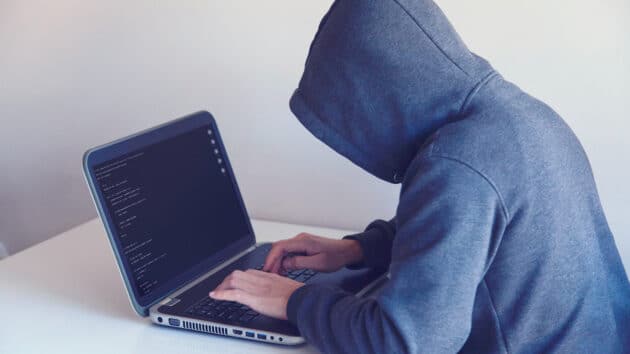
3. Damage control
We know it’s troubling to find out that your social media accounts have been hacked. That’s why the first step is damage control! To keep any misunderstandings from happening, we recommend sending a message to all of your contacts notifying them about what happened and letting them know they should be extra alert so they won’t respond if another fraudulent message comes through your account. By doing this you’ll make sure everyone understands the situation — and hopefully maintain healthy relationships with those important in your life by asking for their support during this time.
4. Invest in security software
Worried about leaving your social media accounts unguarded? Don’t stress! Security software can protect them 24/7. Invest in a solid security solution to guard against malicious links, scams, phishing, and even hacking – so you can browse with confidence knowing that the latest technologies are watching out for you. It’s like having an extra layer of protection – worth every penny spent on those advanced devices!
Privacy and security risks of social media for youth

We’re digging deeper into the potential privacy and security risks that social media poses to today’s youth. Join us as we explore solutions on how best to combat these issues!
1. Profile hacking
Social media platforms are enticing for the youth to take part in, but beware of profile hacking! Hackers can easily penetrate accounts and crack passwords without much effort. The ones targeting social media users typically have a strong technical background – so be mindful when logging on each time as your information is less protected than you think.
2. Fake apps and malicious links
Social media can be a great platform for connecting with friends and family, but young people should stay alert to the potential threats of malicious apps or links. These shady sources often try to get access to personal data such as mobile numbers, email ids, passwords, and even residential addresses – all of which puts those affected at risk of fraudulent activity resulting in unwanted disturbances. Unfortunately, there is no way to eliminate these risks completely. However, by staying vigilant you can hopefully avoid any nasty surprises!
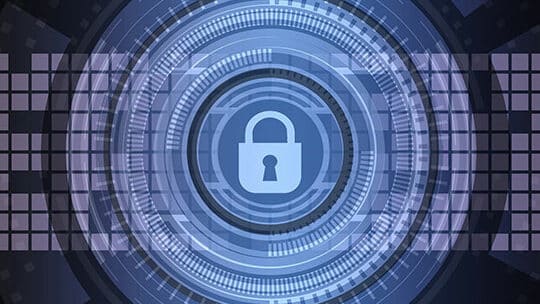
3. Fake offers & schemes
For young people, the exciting world of online shopping can come with a few risks. Hackers are targeting those who search for their favorite items, luring them in with seemingly great offers on expensive products that end up being fake – leaving users open to insecure privacy and security breaches on social media. Practice caution when clicking links after searching online; don’t get too eager and let these scammers take advantage!
4. Log in to social media channels through other networks
Social media has become an integral part of youth’s lives, but it is essential to be mindful when accessing your accounts from multiple devices. It may seem convenient at first, like taking a friend’s smartphone or laptop for granted. However, if you don’t log out before leaving the device can put your account and personal data in risky hands. Be aware of who else uses shared devices as any unknown person could cause irreparable damage by making changes to your profile without permission
5. Fake gaming software and apps
With the rise of social media and gaming, youth are increasingly exposed to potential security threats. Fake online or offline games can be created by hackers in an effort to gain access to young users’ systems without their knowledge.
Even downloading seemingly safe game software could put users at risk for viruses or malware – a situation that no one wants! It is essential that gamers take preventative steps when exploring new apps and platforms so they stay protected from harm.
How can a youth identify the privacy and security risks of social media?

Beware of malicious websites! If you’ve clicked on a link through your social media profile and found yourself directed to an unexpected website, it’s time to be wary. Fake sites can make exiting difficult in order to try to entice their visitors into sharing personal details – but don’t fall for it! Keep smart while browsing online: know what links simply aren’t worth clicking.
Unfamiliar emails or notifications on your social media profiles can be a big red flag. Many fraudulent websites will offer an “Allow” notification bar, but if you’re not sure of the source it’s best to keep clicking away! Constantly receiving messages from random sites and companies that weren’t subscribed to should always raise suspicions – stay alert when browsing online for spam like these.
How can a youth avoid/prevent the privacy and security risks of social media?

You may like: How to Put the Zing Back into Your Social Media Campaign?
1. Think twice before clicking any links
Social media can be a minefield of malicious links, often with the intent to fraudulently steal information or plant viruses. Not only that – clicking on fraudulent links may lead to cybercriminals attaining your address and other sensitive details! To stay secure when browsing social networks, take time for an extra moment of caution before you click any link.
2. Identifying fake apps before installation
Protect yourself from malicious apps by identifying them before installation! With so many social media applications available, it’s important to be aware that some can pose a threat as they collect confidential data. This info can be used for dangerous cybercrimes if exposed – don’t let your personal information fall into the wrong hands and stay safe online!
3. Think before you share
Social media is a great way to keep in touch with loved ones, but always take the time to consider what you’re sharing before it goes online. Think twice about tagging friends and revealing too much personal information such as your location – you never know who may be watching!

4. Get accustomed to your network
Social media can be an amazing place to connect with your friends and meet new people, but it’s important to stay safe. Make sure you know who is in your network – if someone reaches out that isn’t part of the circle, just say no! In addition, keep personal information private as hackers may target young adults on social networks for their details. Taking some simple steps will make sure you have a great time online without any worries about getting scammed.
5. Avoid participating in surveys or questionnaires
With social media taking up more of our day-to-day lives, it’s important to stay vigilant against hidden traps. Although we may be presented with exciting opportunities such as contests and quizzes that offer attractive rewards, these could often lead you into the hands of hackers looking for personal data. To play safe when engaging on social platforms, always double-check before providing any information or entering competitions – especially those asking for your personal details!
6. Protect your location privacy
When it comes to social media, safeguarding your location’s privacy is of utmost importance. Young adults may be tempted to share their live locations when they post photos or updates – while this feature can have its perks (such as documenting educational events and conferences), users should take extra precautions by customizing their settings or unchecking the box on any app that asks for permission to access location details.
Health risks of social media

Social media is a powerful platform, but it can also have its downsides — like the potential health risks. In this exploration session, we’ll be looking at how to identify those hazards and brainstorming solutions on avoiding them!
1. Diabetes and heart disease
Social media usage may feel like an innocent online activity, but it can carry serious health risks. For example, data reveals that just a few hours spent scrolling through social networks could raise your risk of developing heart disease or diabetes by double digits! So if you’re going to stay connected with the world wide web, remember – moderation is key for safeguarding both physical and mental wellbeing.
2. Boosts anti-social behavior
Excessive use of social media can have serious negative impacts on our health. Recent studies reveal that nearly one-fifth of people miss out on valuable moments in their lives due to spending too much time uploading content online – resulting in worsened relationships and anti-social behavior. With the world increasingly turning digital, it’s essential for us to be mindful of how we engage with technology so as not to feel isolated from real-life connections!
3. Makes you addicted
Social media has become an everyday part of our lives, but we might not be aware that it can have some serious consequences on our health. Repeatedly checking notifications releases dopamine in the brain and over time this activity could cause addiction-related problems, as well as disruption to your natural brain chemistry. Be careful how much you use social media — taking regular breaks may help to stave off potential risks!

4. Losing self-control
From flashy purchases to unsavory remarks, the influence of social media can cause us to lose our self-control. Seeking approval from friends and colleagues often leads users into unexpected activities that were otherwise unlikely — potentially causing a variety of health risks along the way. It’s important for individuals to take back control and be mindful when engaging with digital networks in order to maintain their well-being!
5. Eating and sleep disorders
Social media can profoundly impact our health, often in unexpected ways. Too much scrolling may interfere with proper nutrition and sleep hygiene habits – such as eating regular meals at the same time each day or having a consistent bedtime routine. This type of disruption to natural rhythms could have serious consequences on both physical and mental well-being over time!
6. Depression and mental disturbance
Social media can have serious implications for our mental health, especially among young adults. A recent study revealed a strong connection between the amount of time spent online and increased levels of depression. When exposed to posts or comments on their social profile, many experience swift mood changes as they compare their real life with perceived expectations in this digital realm. As such it’s important for us all – no matter what age we are – to take steps towards limiting our own use so that these effects do not become more harmful than beneficial!
How can you identify the health risks of social media?

Eating habits are essential to maintaining good health, but when they become disordered it can have devastating consequences. Many young people fall prey to malnutrition or drastic weight loss if their eating occurs irregularly over a short period of time. Combating this requires skill and dedication; an endeavor that should not be taken lightly in order for individuals to return back into healthy routines.
Unhealthy sleep patterns can have a dramatic effect on an individual’s overall well-being. Parents may notice their children struggling with fatigue or even insomnia from constantly being active on social media late at night. This could lead to intensified depression levels and eventually diminish one’s productivity in work and life – but this doesn’t need to be the case! There are measures we can take now before our circumstances spiral out of control; by regulating healthy sleeping habits, those affected can make drastic improvements both mentally and physically.
More and more young adults are turning to professional psychological consultations in order to free themselves from the grip of social media obsession. This is a testament that individuals recognize their need for support during difficult times, allowing them to reclaim control over their lives!
How can you avoid/prevent the health risks of social media?
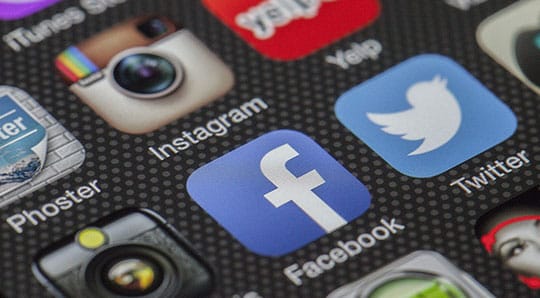
You may also like: SEO Benefits of Having Strong Social Media Presence for Businesses.
1. Limit social media usage
When it comes to the health effects of social media usage, moderation is key! Limiting your time spent on these platforms can have a positive effect – not only physically but also mentally. By setting boundaries around how much you engage with social media each day and week, you may find that both your body and mind are more relaxed.
2. Stick to time-plan
Struggling with the amount of time you spend on social media? Take control by creating a daily schedule that allows for specific activity times and takes into account both your nutrition needs as well as sleep. Ensure to avoid disruptions during breakfast, lunch, or dinner so that you have an effective plan in place!
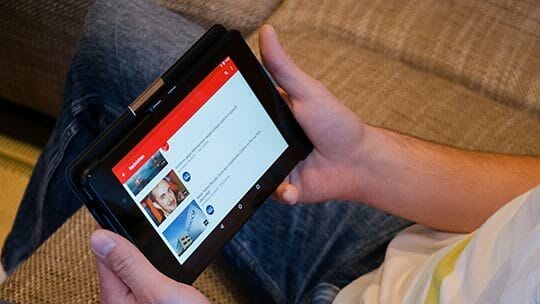
3. Keep yourself motivated
Feeling unmotivated? Seeking an inspiring pick-me-up? Why not curate a positive attitude and create your own content oasis? Instead of surfing the web for viral posts, find motivational quotes or read inspirational stories. Working towards this visual representation of resilience will help you stay focused while avoiding any risk of depression or jealousy that comes with viewing negative content.
4. Keep a mindful approach
Social media can be a great way to stay connected and express yourself, but it’s important to keep your well-being in mind. For peace of mind while using social networks, take an intentional approach – remain aware of who you’re interacting with and choose what parts of life you share wisely so that there are no unwelcome surprises down the road!
Privacy and security risks of social media for businesses
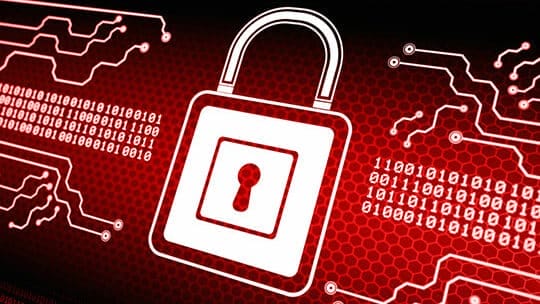
With the ever-increasing use of social media, businesses all around are exposed to a range of privacy and security risks. In this section, we’ll explore what these risks may be, how to identify them, and ways you can put measures in place for mitigation.
1. Fake requests from spam profiles
Social media can be a great source of information and connection, but it also brings an unwelcome guest: fake profiles with malicious intent. These accounts attempt to send harmful viruses into your company system, threatening the safety of data – not something you want on your watch list! Proper vigilance while browsing social sites is key in preventing damage from these digital intruders.
2. Phishing
Phishing is a malicious practice that poses serious threats to the security of any business. Cybercriminals create fake social media accounts which look just like those belonging to your company; with this, they can entice customers and access confidential information – even bank account or credit card details! By ignoring these dangers, businesses risk losing their current as well as potential clients in one fell swoop. Therefore it’s crucial for companies to take all necessary precautions against phishing on social media networks.
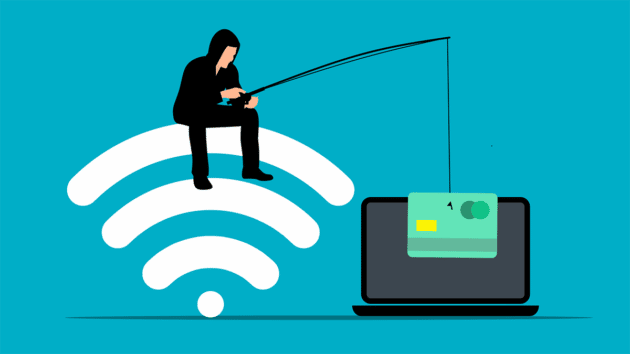
3. Brand impersonation
With the prevalence of social media, it’s no surprise that businesses are at risk of brand impersonation. Hackers and competitors have been known to create copycat accounts in order to spread false information about a company. This can tarnish its reputation and negatively affect customer trust – so it’s important for companies to be aware of their online presence and take measures against potential impostors
4. Ransomware
Social media is not simply a platform for people to connect and share their lives; it’s an opportunity for hackers too. With ransomware, they can block access to your business system until you pay ransom money — with no guarantee that you’ll ever get the data back!
This malicious software could also put the personal details of all employees at risk, leading to potential blackmail attempts by cybercriminals – potentially putting both your employee morale and your entire operation in jeopardy. Safeguarding against this threat should be the top priority on every business’s list when protecting valuable data and creating a safe work environment.
How can a business identify the privacy and security risks of social media?
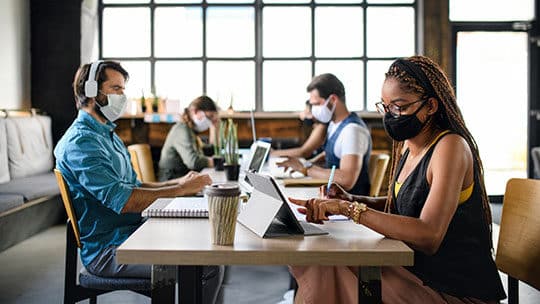
When it comes to protecting your business on social media, personal and corporate profiles have the same risk of getting hacked. Keep an eye out for suspicious activity such as slow systems or sudden shutdowns; these could be indications that you are being targeted by malicious actors. Taking proactive steps today can protect you from potentially damaging security breaches tomorrow.
Have you noticed that some of your work folders are becoming mysteriously inaccessible? It could be a signal from the cyber world alerting you to an unforeseen security threat. Take quick and appropriate action now to protect your business’s reputation – this is not something to delay!
How can a business avoid/prevent the privacy and security risks of social media?
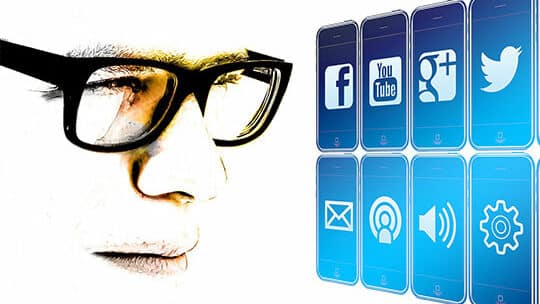
Recommended for you: How to Incorporate Social Media in Your B2B Marketing Strategy?
1. Using two-factor authentication
Take your online security to the next level with two-factor authentication (TFA, wiki)! Also known as multi-factor verification, TFA adds an extra layer of protection when it comes to accessing a personal account. When used for logging into social media profiles and other digital accounts, users need to input not only their username and password but also another piece of information such as a one-time code sent via SMS or email. This additional step greatly enhances the safety measures taken in protecting data – ensuring that real owners are kept safe from malicious actors!
2. A proper privacy setting for your social profiles
Keeping up with the digital age, social media has become an integral part of many lives. As a result, it is essential to make sure that our online presence and personal information remain safe! Facebook provides its users with various privacy settings where they can securely control who sees their profile picture, name, gender identity, and other data points. Other popular sites such as Instagram also offer similar controls for anyone wanting greater security when sharing information about themselves on the web.
Put your mind at ease by familiarizing yourself today with the built-in protection these platforms have made available — so you don’t miss out on any opportunities while simultaneously keeping secure in knowing exactly what others are privy to viewing!
3. Perform frequent audits
It’s critical to stay ahead of the curve against malicious hackers. That’s why it pays off to perform frequent social media audits, so your business can be prepared when digital threats come knocking. Use these regular check-ins as an opportunity to update settings and policies – you can even determine who should have access rights while you’re at it! Taking a few moments now will assure security in the long run!
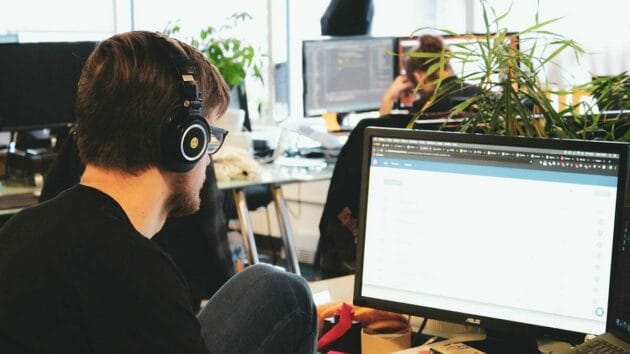
4. Data backup
Protecting your work data is an essential measure to keep yourself free of any financial losses. To stay on the safe side, it’s best practice to set up a regular backup schedule for all important files and documents. Backing everything onto one hard drive may not be sufficient as there is always a risk of corruption or crash; we recommend cloud storage services instead! With this setup, you can ensure that your sensitive information remains secure while being continuously saved in the event of system failure.
5. Prohibit social media
Keep your business safe and productive by limiting access to social media sites. With a few simple tweaks, you can customize settings in your internet router or firewall to restrict employee usage of distracting websites. This will keep both sensitive data secure while helping employees focus on the task at hand instead of checking their newsfeeds all day!
6. Employee awareness
To ensure everyone in your organization is aware of the potential risks posed by public and private social media accounts, consider establishing ongoing educational programs. Drawing on their expertise, you can train employees to understand the advantages/disadvantages associated with these platforms as well as how best to identify genuine websites from those that are fraudulent – looking at website URLs, design structures and more! Regular training sessions will help build confidence among staff members so they make smart decisions when using social networks for business purposes.
Cyber security risks on social media: how the risks open up?
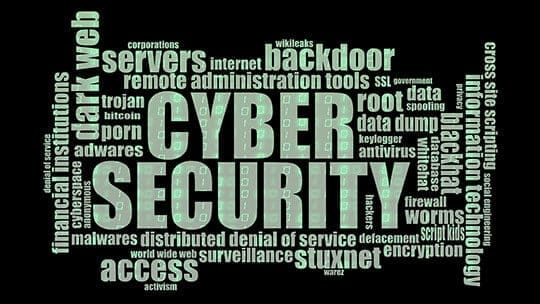
Social media is an invaluable resource for staying informed and connecting with our loved ones. It’s a great way to build meaningful relationships online but can also leave us vulnerable to cyber threats if we don’t practice the necessary caution. At its core, social media relies on trust — we tend to accept messages more readily when they come from people that are part of our network or recommended by close friends.
Spear phishing is an updated take on the age-old email malware viruses. Basically, hackers use social media messages containing malicious links to target a person and gain access to their computer or device – along with all of that individual’s contacts – if they open it! Then, by hijacking a trusted contact, the same message can be sent again in hopes of duping someone else into clicking its link.
Malware is a major cyber threat and what makes it so dangerous, aside from its ability to wreak havoc in networks, is how quickly it can spread. All that’s needed for someone to become infected with malicious software through social media posts are links – luckily something most of us come across every day! Surprisingly, spear phishing emails have a 30% open rate but the success rate increases dramatically when shared on social media; 66% of people will click through if recommended by someone they know or trust online.
Some case studies on social media and cyber security risks
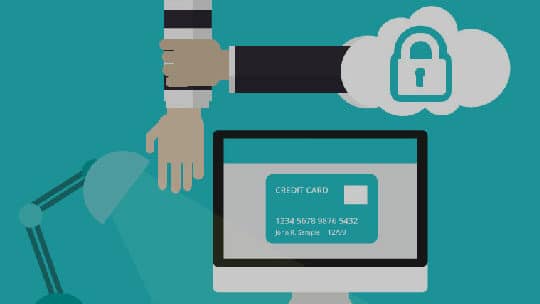
In 2017, an unsuspecting Pentagon official almost opened a seemingly harmless door for Russian hackers – all from just one click on Tweet about a ‘family-friendly summer vacation’. But it wasn’t only this individual that was targeted – over 10,000 attempts were made to breach the accounts of people in the Department of Defence. This should serve as a reminder that no matter how vigilant you may be with cybersecurity measures, it can take just one lapse in judgment to put your data at risk.
LinkedIn, the business-focused social network with a quarter of Facebook’s users, is still vulnerable to attacks. In 2017, an individual operating under the pseudonym “Mia Ash” sent out bogus friend requests on LinkedIn which contained malicious documents in emails if accepted — enabling remote access trojans when macros were enabled. Stay safe and protect your information!
What to learn from these case studies?
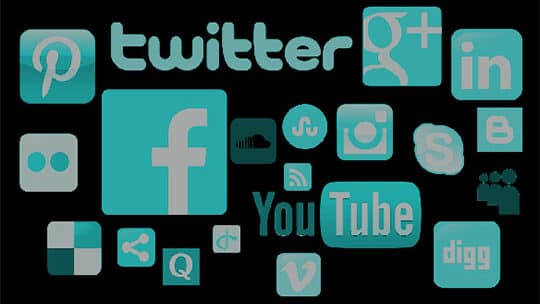
In this digital age, more and more of our lives are online. To help keep us safe from cyber threats we must remain vigilant against human error that may befall us – while staying educated on the latest cybersecurity protocols. Of course, technology can only do so much; physical security systems need to be kept up-to-date as well in order for maximum protection both digitally and physically!
To truly protect against malicious cyber threats, it’s essential to take physical security into account. Installing sturdy locks and CCTV cameras can give an extra layer of safety — as well as a digital key system that restricts weekend or evening access. Staying aware of your environment is important too; use common sense when protecting valuable information from potential harm!
Lesson 1:
Keeping your cyber-security in check is key! Always remember the cardinal rules: if you don’t know who sent a document, do not open it. If there’s an option to enable macros – cancel straight away! And when confronted by links from unknown sources, save yourself some time and effort by searching for them directly through search engines instead of clicking on the potentially harmful links in the message.
Lesson 2:
Don’t let hackers control your digital life – by creating unique passwords for each service you use, not only are you keeping yourself safe from harm but also protecting those around you. Having the same password across all of your services is like handing over a key to anyone who wants it and leaving everyone vulnerable to potential phishing attacks. Make sure that doesn’t happen!
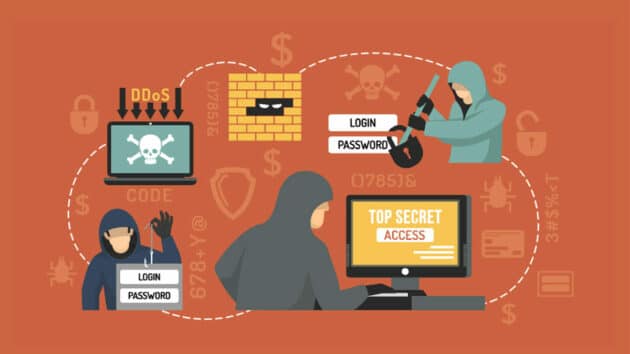
Lesson 3:
To help protect yourself from malicious scams and ensure the safety of your data, it’s wise to employ caution when engaging with anyone you don’t know online. This includes invitations, tweets, or special offers – particularly if they contain spelling and grammatical errors claiming to be from a person representing a business. If that sounds familiar but too good to be true – chances are high it is! So whatever details might have been requested may best stay securely within your control for now. In essence: trust no one who hasn’t gained your real-life acquaintance first!
Lesson 4:
Keeping your social media safe is not only a smart move but an important one! Keeping track of who you allow access to it and being mindful about what information you share publicly – like when you’re out for the weekend or checking into places – can help protect yourself from malicious people online. So stay vigilant on socials – it’s essential in today’s digital landscape.
Lesson 5:
Secure networks no longer solely present a problem for personal security – now your office laptop or work pass could provide hackers with an easy entryway to sensitive secured systems. Even worse, the criminal can use their access as leverage to get into physical business spaces and possibly steal important hardware components like hard drives while also taking other measures such as installing keyloggers that offer remote insight on typing patterns intended only for exclusive accounts.
Conclusion

In today’s digital world, social media has become an essential tool for businesses looking to engage new customers and build online communities. With this in mind, it is important to understand the risks associated with various platforms before starting a campaign – taking preventative measures upfront will help protect your personal or company reputation both now and in the future.
Everyone wants to be present on social media and make the most of it. But there are certain risks that come with it, such as hackers and fake accounts. To ensure a stress-free experience online, all you need to do is follow some simple steps for safety! That way, have fun engaging in your digital life without any worry about scams or frauds getting in the way.





